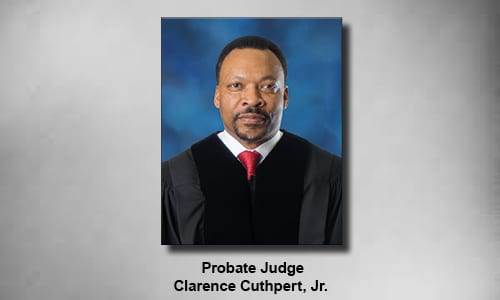
By Probate Judge Clarence Cuthpert, Jr.
There are several myths that have circulated for years regarding the time it takes to probate an estate and the expenses associated with the probate process. Many people assume these myths are correct simply because of what they have always heard. But, as I am sure we have all learned through the years, when we rely on what “they” said (which is often the source of the information that started the myth), more often than not there are inaccuracies in the information provided.
A few of the common myths pertaining to the probate of an estate are:
1. If someone dies without a Will, the State will take their property.
This myth is simply not true, UNLESS, the heirs of the deceased person (“decedent”) fail to appear and make claim for or against the property owned by the decedent at death for which no disposition was provided for either by will or otherwise. This process, known as “escheat”, will only be utilized after a period of four years have passed and the personal representative petitions the probate court of the county in which the letters were granted for determination that the property has escheated to the State. If any alleged heir files an objection, a hearing will be held to determine the validity of the claim.
2. It takes years to probate an estate.
Most estates can be resolved within six months to a year. If there is a will and none of the heirs contest it, the process should not take very long at all. After the proper notices have been given either by personal service or publication as required and the time for any objection has expired, or the heirs sign an Acknowledgement of Service and Assent to Probate Instanter, the probate process will move forward. However, if an heir does object, the process will be extended to resolve the issues raised in the objection.
3. The fees and expenses associated with the probate process will diminish the assets of the estate.
The fees and expenses associated with the probate process generally consists of filing fees, including the costs of personal service or service by publication upon the decedent’s heirs. Attorney’s fees can vary depending upon various factors such as the standard rates for attorneys in the geographic area where the petition to probate is filed, as well as the experience and expertise of the attorney you choose. If an heir of the decedent contests the will, attorney’s fees can increase significantly. While this section does not claim to address every possible expense that could arise during the probate process, it does address those fees and expenses most commonly associated with the same.
4. I am required to leave at least $1.00 to my heirs to avoid them inheriting more.
You are not required to leave anything to anyone in your will. Your assets may be distributed in any manner you choose. Even married persons can elect to leave their assets to someone other than their spouse, such as a charity, church, or organization. However, if the decedent’s assets include real property titled to them and their spouse as joint tenants, the property will transfer to the surviving spouse after death.
5. The oldest child must serve as executor of their parent’s estate.
There is absolutely no truth to this myth. The decedent can appoint anyone he or she chooses to serve as executor of their estate. In many cases the eldest child may not be the most responsible one, which is why the decedent appointed one of their younger children as executor. If an executor is named in the will, the court will generally appoint that person as executor unless an objection is filed and the court finds that there is a compelling reason not to follow the decedent’s instructions.
The information included herein is only intended to address some of the common myths associated with the probate process. This information is not all inclusive, and should not be used as or considered to be legal advice.
Throughout each month, the clerk of courts, tax commissioner, sheriff and probate judge—Rockdale’s elected constitutional officers—discuss topics relevant to their respective roles


![Validate my RSS feed [Valid RSS]](https://web.archive.org/web/20240108205913im_/https://ocgnews.com/wp-content/uploads/2022/07/valid-rss-rogers.png)

